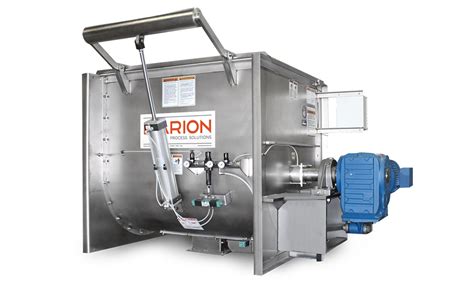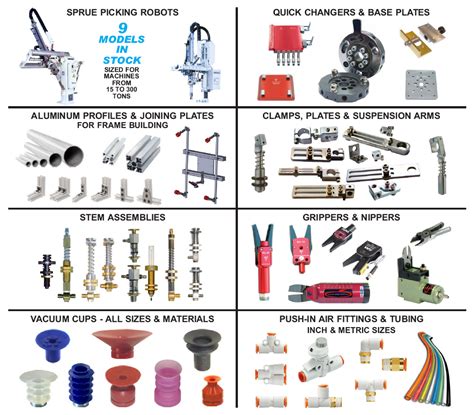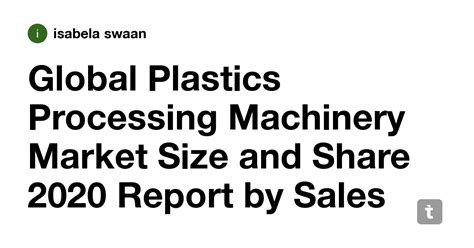The plastic process equipment industry has experienced significant growth over the past few decades, driven by the increasing demand for plastic products in various sectors such as packaging, automotive, and consumer goods. As a result, the industry has seen the development of a wide range of equipment designed to improve efficiency, reduce costs, and enhance product quality. In this article, we will delve into the world of plastic process equipment, exploring its various types, applications, and the latest trends shaping the industry.
Overview of Plastic Process Equipment

Plastic process equipment refers to the machinery and tools used to transform raw plastic materials into finished products. This equipment can be broadly categorized into several types, including injection molding machines, extruders, blow molding machines, and thermoforming machines. Each type of equipment is designed to perform a specific function, such as shaping, molding, or forming plastic materials into the desired shape and size.
Injection Molding Machines
Injection molding machines are one of the most commonly used types of plastic process equipment. These machines work by injecting molten plastic into a mold, where it is shaped and cooled to form the desired product. Injection molding machines are widely used in the production of plastic parts, such as containers, automotive components, and consumer goods. According to a report by the International Association of Plastics Distribution, the global injection molding machine market is expected to reach $12.4 billion by 2025, growing at a compound annual growth rate (CAGR) of 4.5% from 2020 to 2025.
| Machine Type | Application | Market Size (2020) |
|---|---|---|
| Injection Molding Machines | Plastic parts production | $8.2 billion |
| Extruders | Plastic pipe and profile production | $3.5 billion |
| Blow Molding Machines | Plastic bottle production | $2.1 billion |

Applications of Plastic Process Equipment

Plastic process equipment has a wide range of applications across various industries. In the packaging sector, for example, plastic process equipment is used to produce containers, bottles, and other packaging materials. In the automotive industry, plastic process equipment is used to produce components such as dashboards, bumpers, and interior trim. The use of plastic process equipment in the consumer goods sector is also widespread, with applications in the production of toys, household appliances, and other products.
Emerging Trends in Plastic Process Equipment
The plastic process equipment industry is constantly evolving, with emerging trends such as sustainability, digitalization, and Industry 4.0 shaping the future of the industry. There is a growing demand for equipment that can produce high-quality products while minimizing waste and reducing energy consumption. The use of digital technologies, such as artificial intelligence and the Internet of Things (IoT), is also becoming more prevalent, enabling real-time monitoring and optimization of the production process.
Key Points
- The plastic process equipment industry is expected to continue growing, driven by increasing demand for plastic products.
- Injection molding machines are the most commonly used type of plastic process equipment.
- The industry is shifting towards sustainability, with a focus on reducing waste and energy consumption.
- Digitalization and Industry 4.0 are emerging trends, enabling real-time monitoring and optimization of the production process.
- The choice of plastic process equipment depends on several factors, including the type of plastic material and production volume.
Technical Specifications and Industry Standards
Plastic process equipment must meet certain technical specifications and industry standards to ensure safe and efficient operation. These standards include those related to safety, such as the International Electrotechnical Commission (IEC) 60204-1, and those related to performance, such as the American Society for Testing and Materials (ASTM) D3641. Equipment manufacturers must also comply with regulations such as the European Union’s (EU) Machinery Directive and the United States’ Occupational Safety and Health Administration (OSHA) standards.
Comparative Analysis of Plastic Process Equipment
A comparative analysis of plastic process equipment reveals that different types of equipment have their own strengths and weaknesses. Injection molding machines, for example, offer high precision and speed, but may be more expensive than other types of equipment. Extruders, on the other hand, are ideal for producing long, continuous products, but may require more maintenance than injection molding machines. Understanding these differences is crucial to selecting the right equipment for a specific application.
What is the most common type of plastic process equipment?
+The most common type of plastic process equipment is the injection molding machine.
What are the emerging trends in plastic process equipment?
+The emerging trends in plastic process equipment include sustainability, digitalization, and Industry 4.0.
What are the technical specifications and industry standards for plastic process equipment?
+Plastic process equipment must meet certain technical specifications and industry standards, including those related to safety and performance.
In conclusion, the plastic process equipment industry is a complex and dynamic sector, with various types of equipment and applications across different industries. Understanding the emerging trends, technical specifications, and industry standards is crucial to selecting the right equipment and optimizing the production process. As the industry continues to evolve, it is essential to stay informed about the latest developments and advancements in plastic process equipment.
